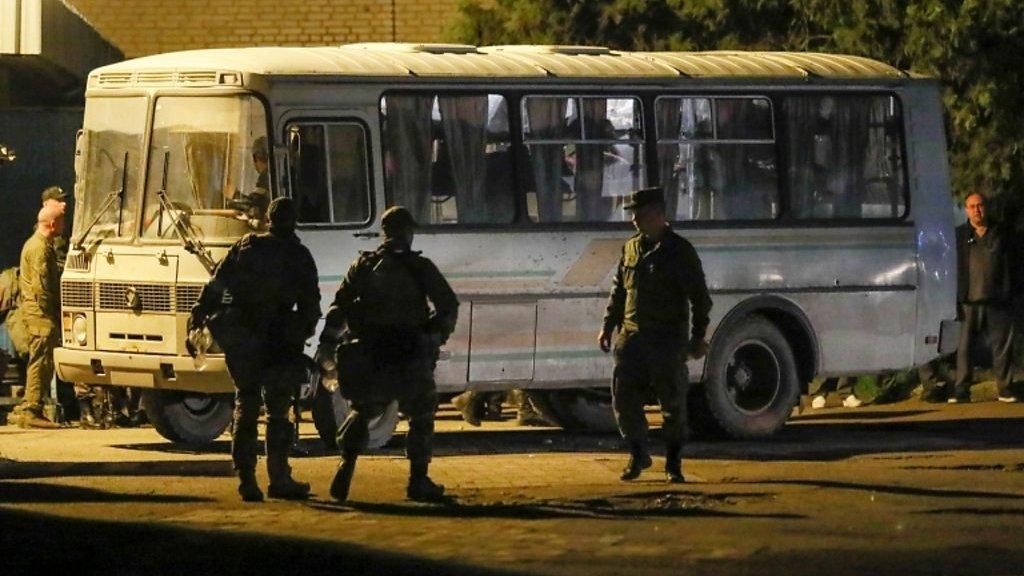Ukraine war: Russia and Ukraine trade blame over prison blast
- Published
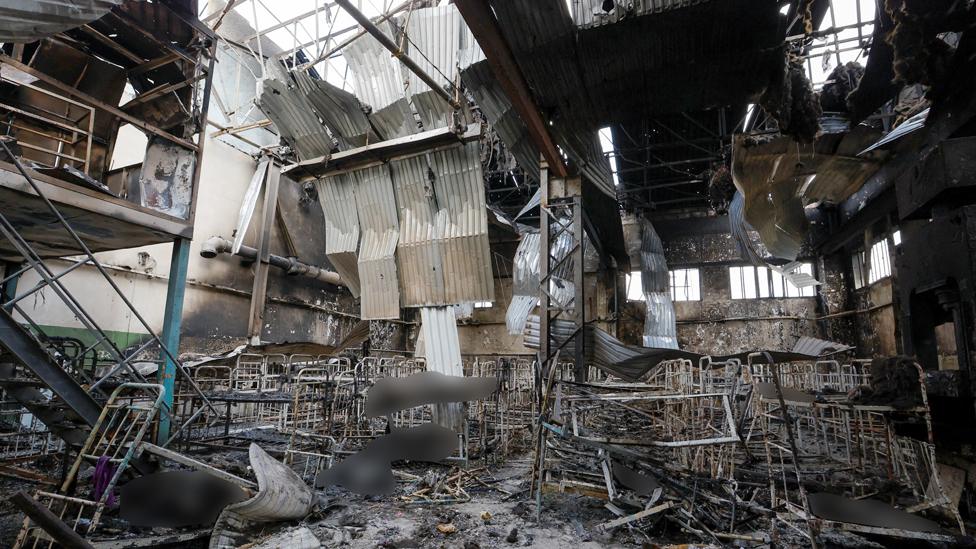
The BBC has blurred some of this photograph showing the building after it was attacked
Russia and Ukraine have blamed each other for a rocket attack that killed dozens of Ukrainian prisoners of war in the occupied part of Donetsk region.
Ukraine says the prison was targeted by Russia in an effort to destroy evidence of torture and killing.
For its part, Russia said the prison camp in Olenivka was hit by Ukrainian precision rockets.
Unverified Russian video footage of the aftermath shows a tangle of wrecked bunk beds and badly charred bodies.
An adviser to President Volodymyr Zelensky said the scene looked like arson, and that a missile strike would have scattered the bodies.
Those detained are said to have included members of the Azov battalion, who were the last defenders of Mariupol and whom Russia has sought to depict as neo-Nazis and war criminals.
Warning: You may find details below disturbing
Ukraine's new Prosecutor-General Andriy Kostin said he had opened a war crimes investigation into the blast. His office added that it believed about 40 people were killed in the strike and 130 were injured.
Daniil Bezsonov, a spokesperson for the Russian-backed separatist Donetsk People's Republic, said the strike had been a "direct hit on a barracks holding prisoners" and the number killed might increase.
Russia's defence ministry said the strike had been carried out with US-made Himars artillery and it accused Ukraine of a "deliberately perpetrated" provocation. The ministry produced fragments of what it said were rockets fired by the Himars system.
The ministry's spokesperson, Lt Gen Igor Konashenkov, said eight prison staff were also injured in the blast, although the Russian-backed proxy authority ombudswoman said none had been affected.

A war crime but who was behind it?
By Paul Adams in Kyiv
The scene inside the "filtration camp" near Olenivka is hellish.
Rays of sunlight shining through jagged holes in the corrugated iron roof reveal a tangle of metal bunk beds and an unknown number charred bodies, some of them still lying where, presumably, they had been sleeping.
Outside, there is blood on a wooden pallet and more bodies, not burned, but bloodied. They look emaciated.
Whose work was this? The airwaves have been full of competing narratives. Russia accuses Ukraine of being willing to massacre its own prisoners of war, saying Kyiv insisted that prisoners from the Azov Battalion be housed in this particular warehouse.
Ukraine has issued furious denials, accusing Russia of a war crime, designed to cover up its treatment of POWs. It says Azov prisoners were recently transferred to the building. And two months ago it accused Russia of torturing prisoners at the very same facility.
With independent journalists not able to access the site, there's little anyone can do at the moment to verify the claims. Ukraine says it has a mountain of evidence, including an intercepted radio conversation between Russian-backed separatists, in which they talk about a series of explosions deliberately engineered by the rebels themselves. Other Ukrainian sources blame mercenaries from Russia's Wagner group.
Only a thorough investigation by impartial experts can possibly establish the truth. Whether such experts will ever be allowed access to this appalling scene is doubtful.

Mykhailo Podolyak, another adviser to President Zelensky, said the Russian allegations were "a classic, cynical and elaborate false flag operation" designed to discredit Ukrainian authorities.
"We demand a reaction from the UN and international organisations," he added.
Andriy Biletskyi, a founder of the nationalist Azov Battalion, said a number of the unit's soldiers were among those killed.
It has been established that a number of Ukrainian troops who surrendered to Russian forces after a protracted siege at the Azovstal steel plant in Mariupol were taken to Olenivka.
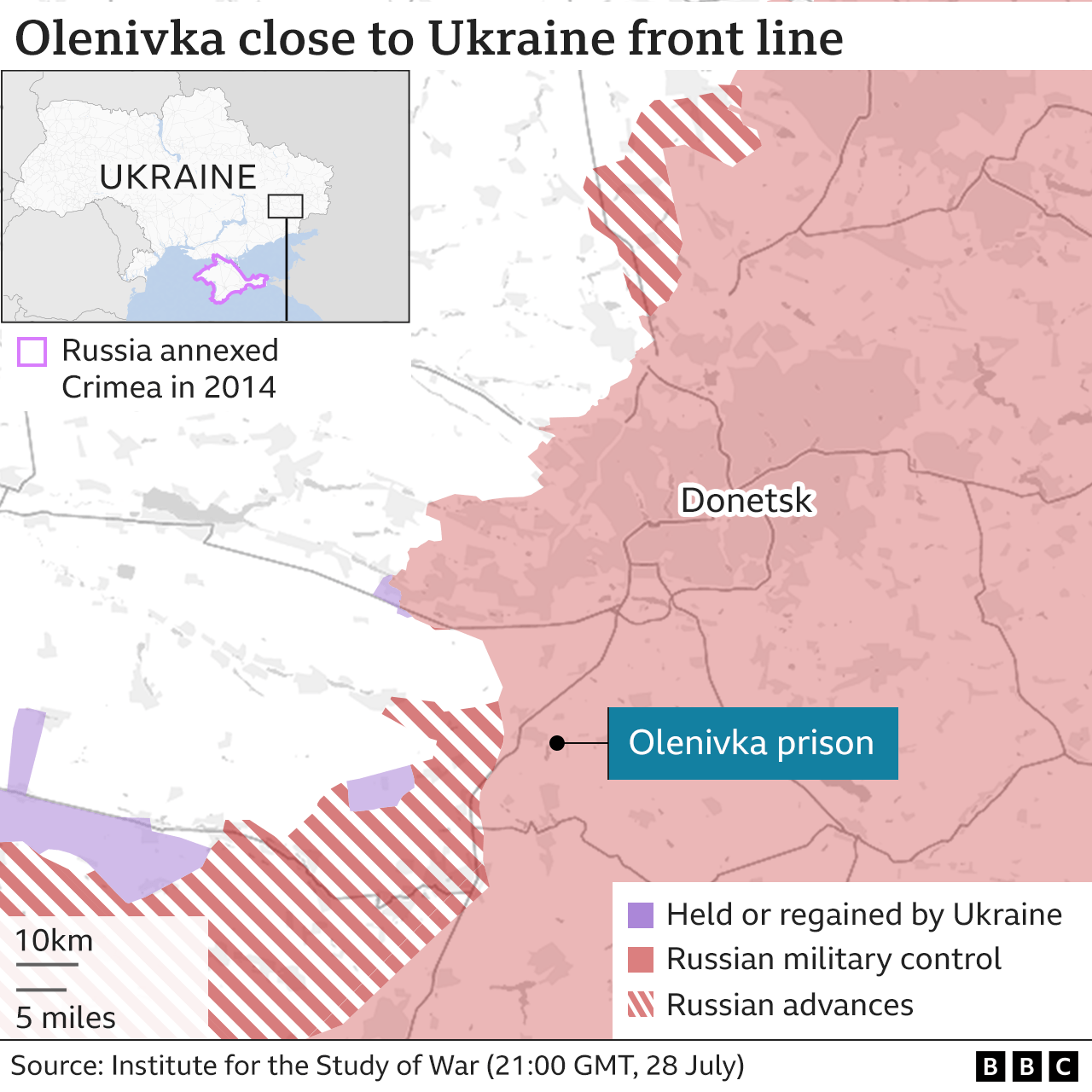

The troops had held out against a relentless Russian assault on the sprawling site for weeks and surrendered in May after using the plant's maze of tunnels to shelter from artillery and air strikes.
Ukrainian officials have said that prisoners-of-war at Olenivka were tortured.
There was further outrage in Ukraine on Friday at a shocking video circulating online that showed a prisoner of war being castrated in another area of Russian-occupied Donbas.
The Russian soldier filmed carrying out the attack in the town of Severodonetsk was identified as a member of a unit belonging to Chechen leader Ramzan Kadyrov.
Residents from a Kyiv apartment block damaged by a Russian rocket are trying to rebuild their homes

War in Ukraine: More coverage

Related topics
- Published29 July 2022
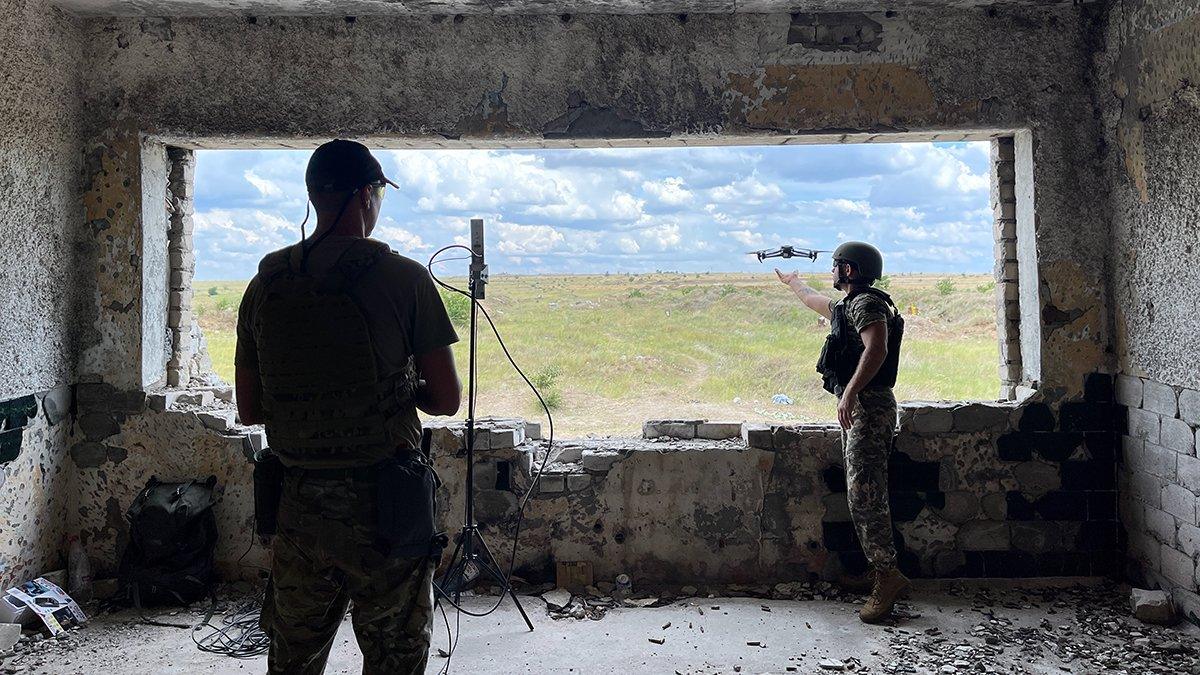
- Published17 May 2022
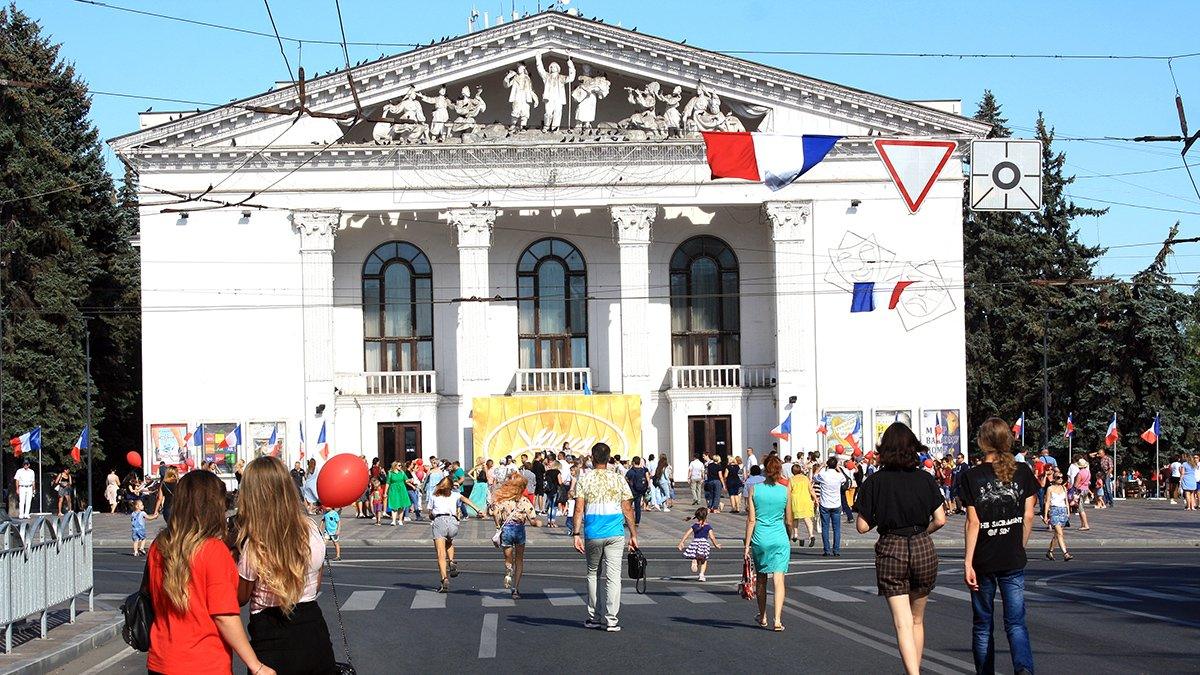
- Published17 May 2022
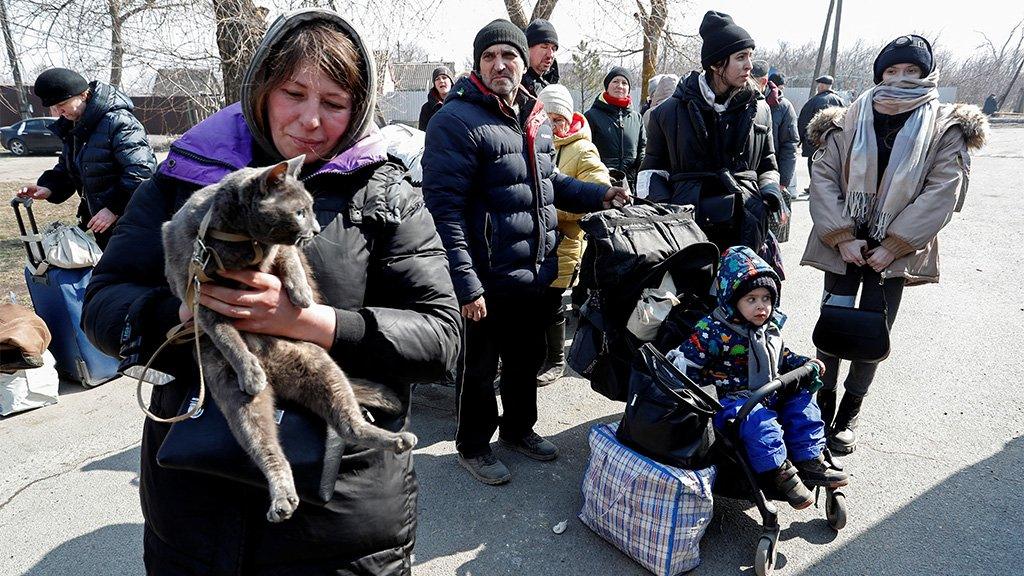
- Published17 May 2022
